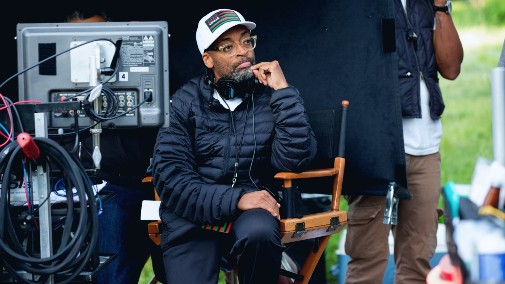
It seems like Spike Lee's on everybody's mind these days. First and foremost, we have the release of the director's latest feature, Da 5 Bloods, to thank for such cultural prominence. However, it would be irresponsible not to mention how current events are also bringing people to this filmmaker's oeuvre. In a time when racial injustice is being actively protested on the streets, the Black excellence and political vigor of Spike Lee's movies seem more relevant than ever…
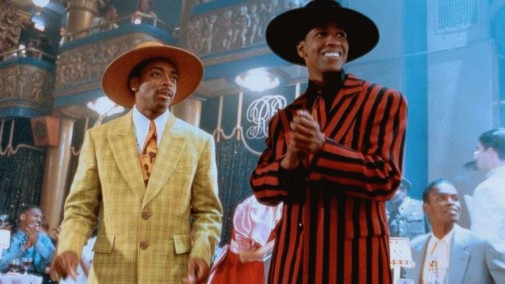
Admittedly, as a white European, I may not be the best person to discuss the greatness of Lee's cinema. Nonetheless, I've been a longtime fan and Spike Lee was even one of the first directors whose craft I paid attention to. It happened back when I was young and my dad showed me 1992's Malcolm X, pointing out how the director had chosen to shot pivotal scenes. In my mind, the love and understanding of movies will always be connected to Spike Lee.
Because of that, I thought it could be fun to write about some of the Spike Lee Joints I most admire. I'm not necessarily talking about famous films like the aforementioned Malcolm X, Do The Right Thing, 25th Hour, or BlacKKKlansman, mind you. Those pictures are already well-known and celebrated plentifully, needing no recommendation or reappraisal whatsoever. It's more interesting to take a look at those flicks that could do with some more attention, even those that are a bit messy - one thing you'll grow accustomed to if you watch a lot of Spike Lee Joints is that he's a wildly inconsistent director. Of course, there's a constant truth about his filmography. Even when a Spike Lee film fails, it's interesting.
With that in mind, here are five recommendations from the works of Spike Lee:
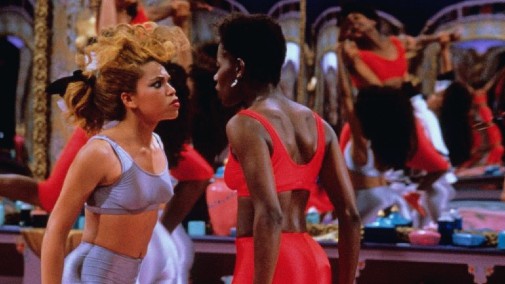
SCHOOL DAZE (1988)
If there's one thing that I love about this director's cinema is how much his film geekery comes through. All Spike Lee Joints are love letters to the Seventh Art in their own way, from the Nouvelle Vague affectations of 1986's She's Gotta Have It to Da 5 Blood's many references to the American movies that immortalized the Vietnam War on the silver screen. Still, even if all of Lee's films are explosions of cinephilia, some of them are more overt about it than others.
Take the director's second feature as an example. School Daze couldn't be more blatant about its cinematic inspirations, being, in essence, a two-hour-long song of adoration from the director to the musicals of yore. However, it's no mindless pastiche that merely reproduces the past. Lee uses the razzle-dazzle of Old Hollywood style to tackle subjects that those sparkly musicals never could or would engage with. Such issues include colorism, matters of hair texture, the wonder of Historically Black Colleges, America's complicity with the South African apartheid, the morality of accumulation of wealth, and much more.
Such words may imply a stoic serious affair, but School Daze funnels its anger and indignation into making a glitzy spectacle. One that is fun and funny, moving too, as loving as its loveable, complex but never too heavy-handed. It also marked the first time Spike Lee worked alongside costume designer Ruth E. Carter, who he had met while she dressed small-budget theatre productions. Carter's work in School Daze is a delirious delight, an embrace of the artifice of musicals that celebrates the beauty of Black bodies and Black culture. If you're a fan of either of these artists, the movie's a must.
School Daze is available to stream on Netflix.
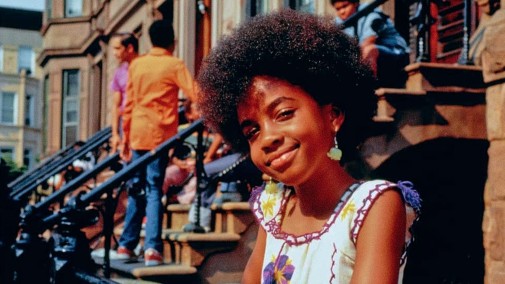
CROOKLYN (1994)
My favorite Spike Lee Joint is also the director's most achingly personal film. In some ways, we can even categorize Crooklyn as a work of semi-autobiography in line with other self-reflections by great auteurs. Think Tarkovsky's Mirror, Truffaut's The 400 Blows, Cuáron's Roma, and a good percentage of Bergman's filmography. Crooklyn is so intrinsically connected to the life of its maker, that Lee went as far as writing the screenplay alongside two of his siblings, Joie and Cinqué Lee.
The picture follows the day-to-day life of a poor African-American family living in Brooklyn during the summer of 1973, a situation not too dissimilar from the childhood of the Lee siblings. The matriarch is a strict school teacher played with utter perfection by Alfre Woodard, while the father is a stubborn musician who Delroy Lindo inhabits as a man that's too stubbornly focused on his dreams to notice the needs of the family. That being said, neither parent gets to be the movie's protagonist, for that honor falls on little nine-year-old Troy (Zelda Harris), the only girl among the couple's five kids.
It's through her eyes that we experience the world Lee recreated from his memories, a cityscape that's as full of color as it is marred by squalor and societal maladies. The film portrays Brooklyn with great affection, choosing an aesthetic that promotes a sense of stylized hyper-reality, while also examining the dynamics of the community and family with equal amounts of affection. Even in times of sorrow, Crooklyn finds beauty in the ways people hold each other up, refusing to give in to misery and always keeping its heart full of humanistic love.
Crooklyn is available to stream on DirecTV.
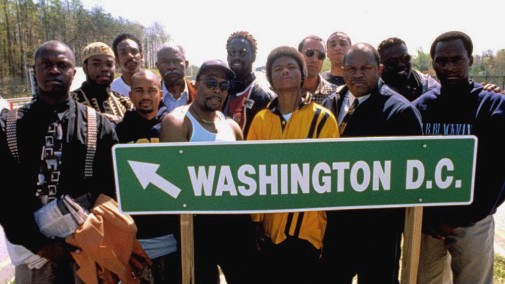
GET ON THE BUS (1996)
For all my praise of Spike Lee, I focus perhaps a little too much on his technical ingenuity, referential style, and political fervor. One shouldn't forget that he's also a great director of actors who's not afraid to play with wildly different registers, spanning from raw naturalism to theatrical showboating. It doesn't always work, but his fearless direction should be lauded. The first narrative feature Lee ever did where he didn't also act in is, curiously enough, one of the best showcases for this facet of his craft.
Get on the Bus is mostly set inside the titular vehicle, telling the story of a group of Black men traveling from California to Washington DC to be part of the Million Man March of 1995. Few things unite the travelers apart from their race and gender, making for a varied vision of Black masculinity. An old man remembers the Civil Rights fights of three decades prior and is inflamed with righteous indignity. There's a teenage boy who couldn't care less and is there because of his insistent father. We have two gay men in a non-reciprocated relationship. Then there are the Republicans and the Democrats, hucksters and activists, light-skinned and dark-skinned men, cops and reformed criminals.
To represent all of this, one needs a stellar cast and, thankfully, the film has great actors to spare. Still, it's the way Lee manages their takes on the roles that makes the film sing. In a shot, he might foreground Andre Braugher's boisterous performance of machismo while contrasting it with Isaiah Washington's quiet seething on the back of the scene. Each actor is like a skilled musician, each one playing a different instrument, and it's Lee who acts as the conductor, guiding them in concert, making harmony out of chaos.
Get on the Bus is available to stream on Netflix.
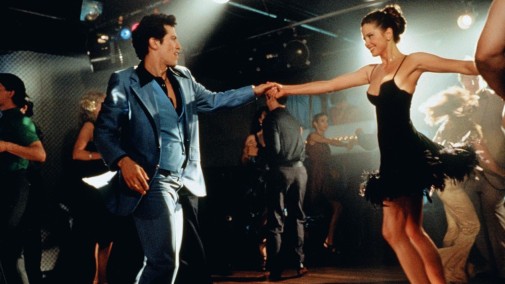
SUMMER OF SAM (1999)
As there ever been a filmmaker whose body of work is more tightly connected to New York City? Scorsese, Allen, and many others may be good contenders, but no director has ever made New York more fascinating to this outsider's eyes as the great Spike Lee. In his films, the city is bursting at the seams with people from different cultures, their voices drowning the noises of the street with a constant buzz. There are neighborhoods where those who are marginalized by mainstream society find their homes, where the summers are blistering and the winters gelid. The air is polluted and suffocates, the buildings are dressed in gowns made of graffiti and the very design of streets is dictated by ancestral heritage and idealism communing with centuries of systematic oppression. It's a city as alive as any of its inhabitants.
One of the Spike Lee Joints that better showcases this is Summer of Sam, an underrated triumph that's hotly divisive and a bit of a mess, I must admit. The movie's a historical piece about the warmest months of 1977 when the self-titled Son of Sam terrorized the people of New York with a series of grizzly homicides. What most surprises about Lee's approach is how backgrounded the mystery of the killer is. Instead of following the expected approach and making a narrative of investigation and crime-fighting, murder victims, and bloodthirsty monsters, he created a portrait of traumatized New York instead.
The terror of the Son of Sam is like a demonic influence that galvanizes the latent issues haunting entire communities, making some problems obvious while leading others to their tipping point. Summer of Sam thus works as a sort of explosion in slow motion, as we watch the characters go mad in their survivalist panic and search for the guilty party. The actors, whose performances are heightened to the point of hysteria, embody that mood but it's the formal execution that most dazzles, be it in terms of period detail or the tactility of images. We can practically feel the heat irradiating from the screen, smell the sweat, and taste the panic.
Summer of Sam is available to stream on Hoopla.
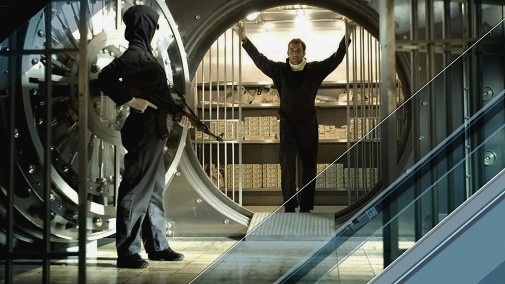
INSIDE MAN (2006)
As much as I adore Spike Lee, the man can sometimes get lost in his head. Even when he tackles something as straightforward as a World War II prestige drama (Miracle at St. Anna), he manages to end up with a mountain of loose threads. Why not add some religious mysticism to the historical milieu? And a murder mystery framing device? A Farcical comedy bit centered on Nazi propaganda? Flashbacks to atrocities that have nothing to do with the main plot? Around 50 extraneous characters? Spike Lee says yes to all of those and he'll come up with half a dozen more ideas if you give him a chance.
All this to say that Lee would be the last person I'd trust to direct a tight, sharply edited heist picture. And yet, he did Inside Man, one hell of a crime thriller that's bursting with energy from minute one and never lets up. Focusing on a bank robbery, the movie uses a canny flashback structure to divide the audience's attention and allegiance between Clive Owen's criminal mastermind, Denzel Washington's determined cop, and a viperous "fixer" played by Jodie Foster. Through deliberately ambiguous dialogues and overlapping agendas, Lee constructs a bombastic cinematic experience that's as exciting as it is precise.
The cinematography, full of deep shadows, glowing lights, and flying camera movements, is of particular wonder. The DP responsible for such glory was Matthew Libatique, a genius cinematographer that's also a devoted fan of Spike Lee. On interviews, he even claimed that one of the reasons he decided to pursue a career in the film industry was the excitement he felt watching Lee's Do The Right Thing. Watching Libatique and his idol working together is to watch cinema magic happen.
Inside Man is available to stream on Netflix and DirecTV.
Truth be told, these five titles could have been easily substituted by others in Lee's filmography. The man has plenty of good movies under his belt (plenty of bad ones too, it must be said). Luckily for us, a good number of those projects are available to stream right now. Other of my suggestions include the filmed play Pass Over available on Prime Video, the sex comedy Girl 6 on Starz, the jazzy delights of Mo' Better Blues on DirecTV, among many others.
Are you a fan of Spike Lee? If so, what's your favorite joint?